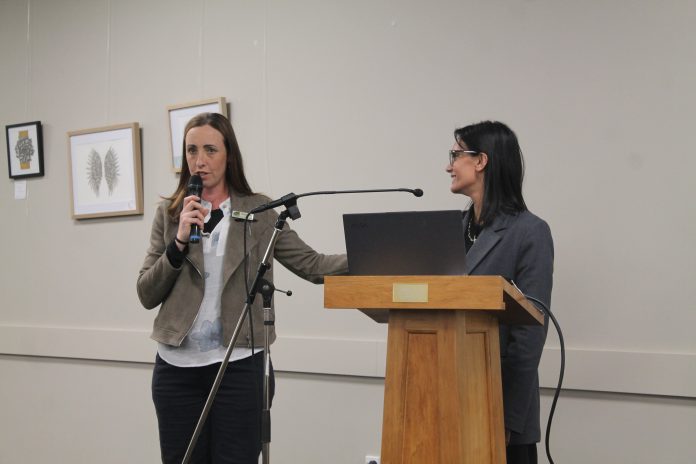
Eastern Southland farmers are questioning whether they will end up farming by consent and if a new district plan will hit productivity.
A meeting organised by Federated Farmers Southland in Gore on Thursday discussed the proposed Gore district plan.
About 60 people were at the meeting. Much discussion revolved around the legislation of significant natural areas (SNAs).
Federated Farmers senior policy adviser Rachel Thomas said the SNAs were of serious concern.
‘‘Most activities within an SNA require consent in the current plans,’’ Ms Thomas said.
‘‘Activities included the felling and removal of vegetation, planting of shelter belts, woodlots or commercial forestry, earthworks and erection of buildings.
Waterfall Range and the Pukerau Red Tussock Reserve were the only areas classified as SNAs in the Gore district at present.
‘‘Under the proposed plan SNA criteria is included which reflects the criteria in the national policy statement.
‘‘We are a bit concerned with this chapter,’’ Ms Thomas said.
Concern was directed at the wording of the chapter.
It implied that all unmapped areas would be classified as SNAs, she said. People could continue existing activities in an SNA but would need a consent to begin new ones or could not do so, she said.
Attendees of the meeting believed only mapped areas should be included to be an SNA.
Federated Farmers senior vice-president Bernadette Hunt said there could be reverse effects.
‘‘We don’t want to create a reverse outcome where people are motivated away from planting natives,’’ Ms Hunt said.
People were generally motivated to avoid the resource consent process, she said.
Waimea farmer Russell Welsh said different areas required different rulings.
‘‘Bureaucrats really don’t know what they’re talking about . . .It shows how far out of touch they are,’’ he said.
Certain rules could create a less productive farming environment, he said.
One attendee was concerned about the process of identification of an SNA through farm environment reports.
‘‘That could actually be quite onerous,’’ he said.
His concern was answered by Ms Thomas.
‘‘We agree with that. It is not a trigger we would recommend the council uses . . .It’s a real surprise with farmers when they find out they’ve got something on their land that they weren’t expecting.’’
Another attendee said the legislation would lead to consent-based farming.
‘‘What this does is take what’s largely permitted and make it not permitted.
A lot of activities will need consent which will make farming far more challenging.’’
Other concerns raised at the meeting included fencing regulations, agricultural aviation, valuation of rural properties, farming on the Hokonui Hills and difficulty to understand the document.
Gore District Mayor Ben Bell thanked people for attending the meeting.
‘‘It’s really interesting to see a lot of the things that we’ve talked about in the chambers starting to bubble up again,’’ Mr Bell said.
It was important for people to make submissions so all aspects of the plan could be edited, he said.




